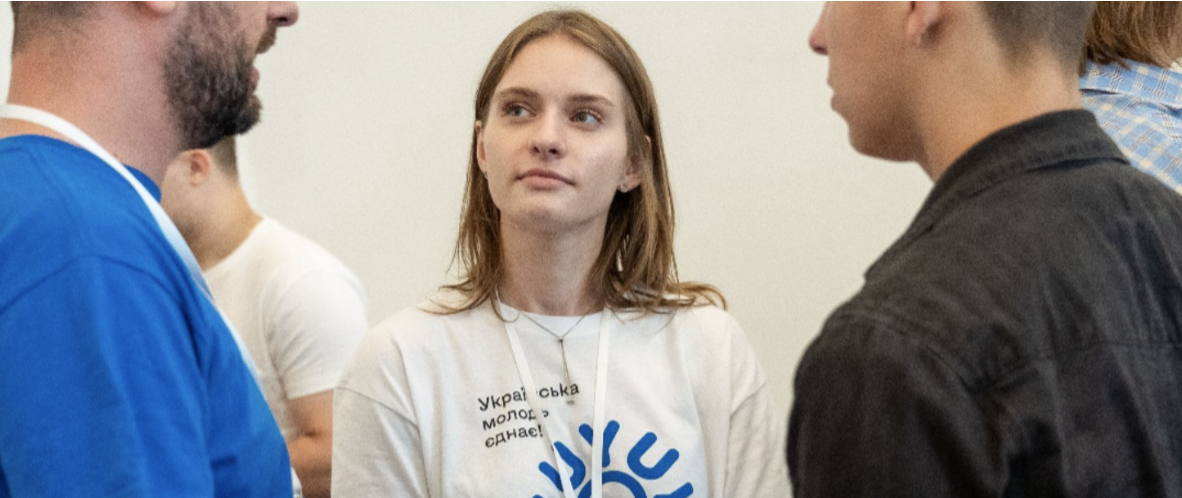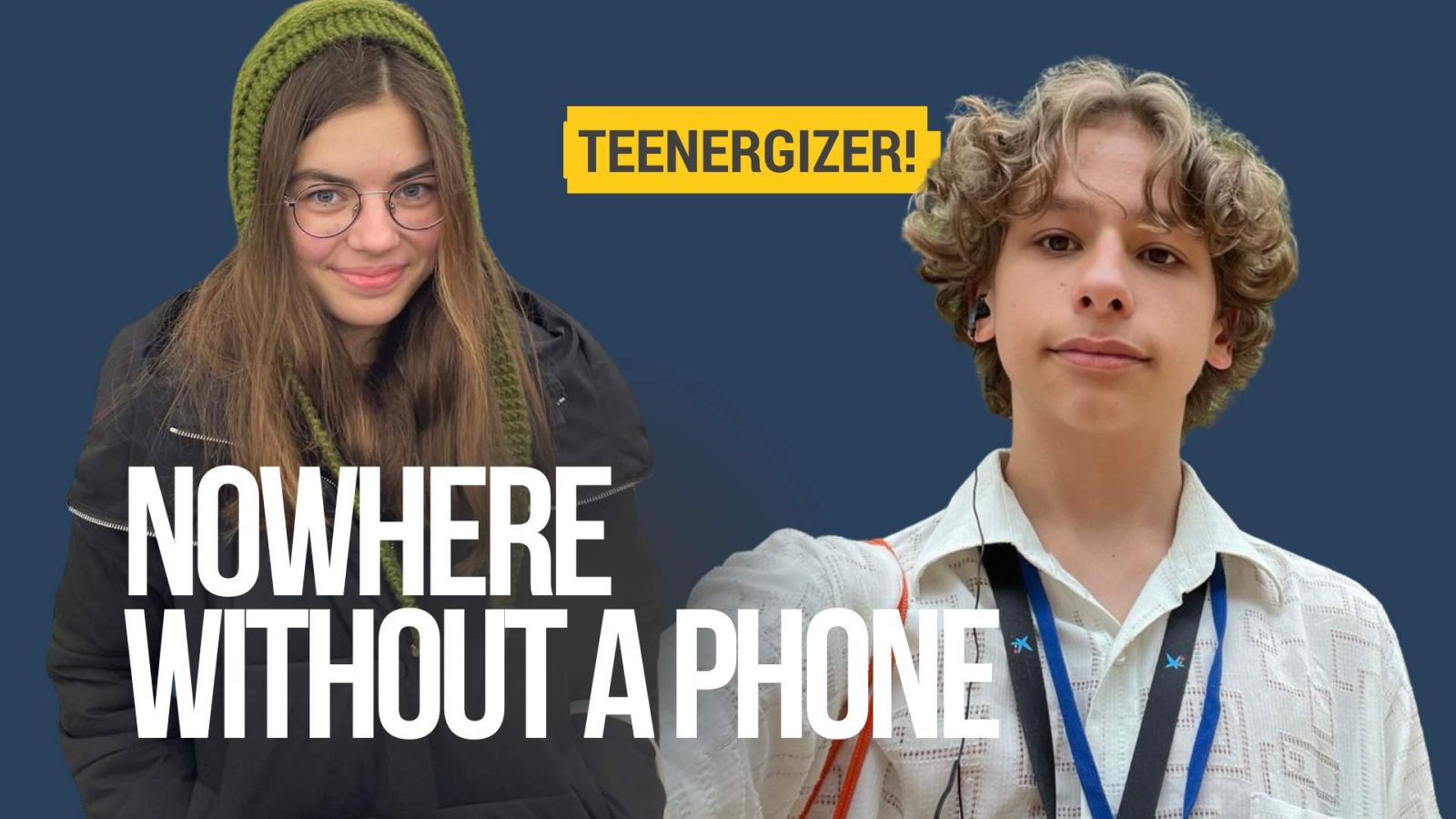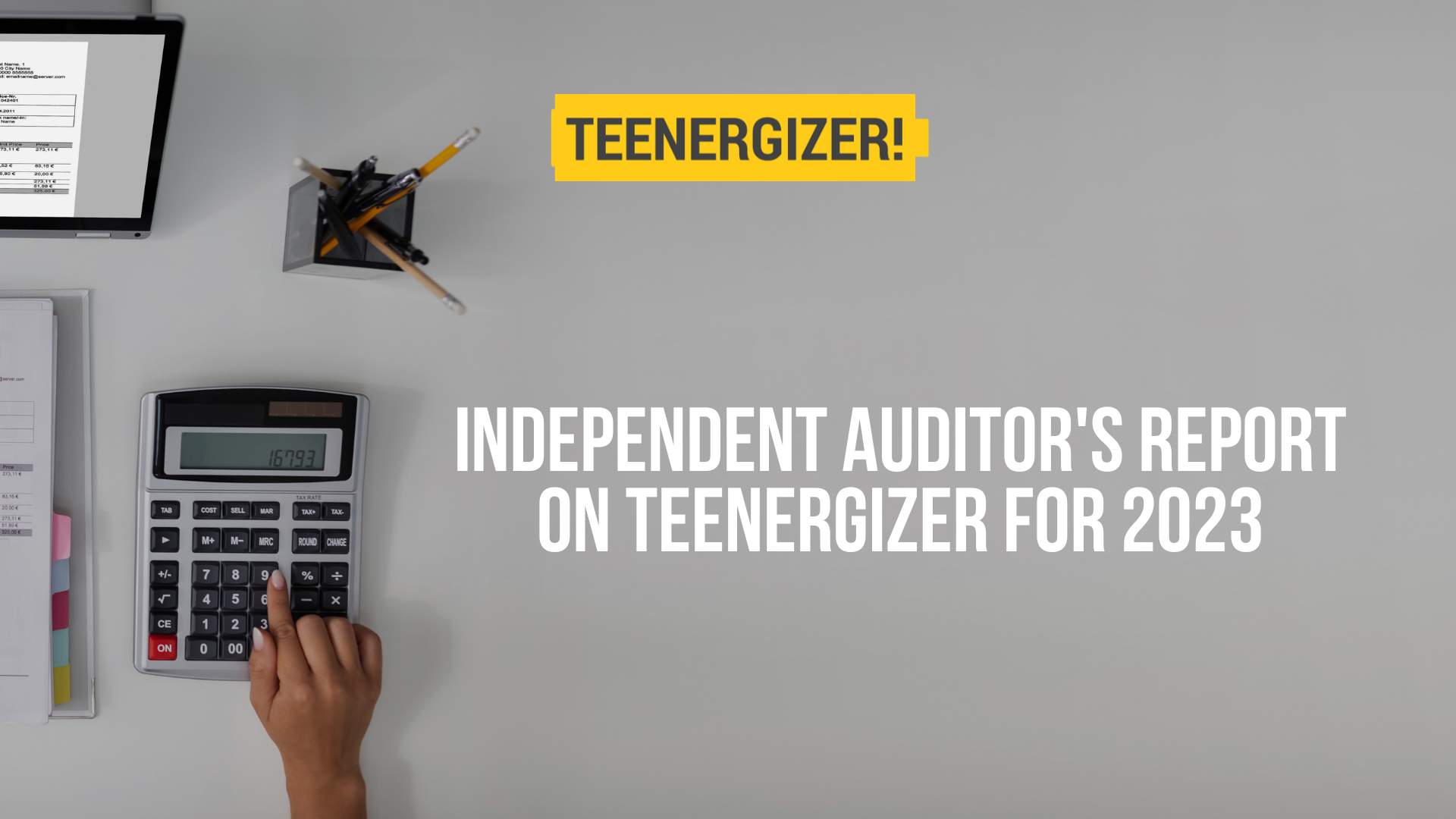This interview was originally published on the Youth4Health network website launched by WHO/Europe.
As a psychology student seeking professional experience, Yevheniia Usychenko from Ukraine discovered a project that not only fulfilled her academic needs, but also brought profound meaning and purpose, immersing her in the world of youth health activism.
Now 23, Yevheniia is the deputy director of Teenergizer, a rapidly growing youth movement that supports young people in 4 countries of the WHO European Region. Teenergizer provides free, credible information about mental and sexual and reproductive health*, and is a proud member of WHO/Europe’s Youth4Health Network and the Pan-European Mental Health Coalition.
Displaced by war and currently based in France, Yevheniia – once an eager student – became an influential youth leader, demonstrating resilience and dedication. We spoke with her about the most pressing challenges related to young people’s mental health and sexual and reproductive health and rights (SRHR) and how youth-led initiatives are driving positive change through education, peer support, and advocacy.
WHO/Europe: What would you say are the major issues pertaining to young people’s mental health?
Yevheniia: Across Ukraine, Kazakhstan, Kyrgyzstan, and Tajikistan, where Teenergizer operates, the main issue is a lack of mental health awareness at all societal levels. Seeking help for mental health issues is still stigmatized, often due to cultural factors. Many young people struggle to understand their own mental health experiences. In some areas, limited internet connectivity further complicates access to information and support.
Youth from vulnerable groups, such as LGBTQI+ youth or young people living with HIV, face unique mental health challenges. They often lack trusted confidants, face potential rejection from parents, and endure stigma and bullying from peers. Many teachers are ill-equipped to address these issues, sometimes even contributing to the problem.
When I was younger, depression and self-harm were poorly understood. I remember several popular online communities sharing images of self-harm, which I mistakenly saw as a weird way of self-expression. Now, I recognize the profound implications. While today’s youth are more mental health-aware, significant progress is still needed.
WHO/Europe: And what about SRHR?
Yevheniia: The stigma surrounding this topic is far greater. In Ukrainian schools, you can learn about sexual and reproductive health in biology classes, but this information is often relegated to self-study at home, which most adolescents skip. Even in my family, where my mother is a doctor, we never discussed it. I had to seek information on my own.
In this context, the first step is typically an internet search, which often leads to pornography sites due to their high search rankings. I didn’t know where else to find answers, so it felt like being lost in a forest.
It wasn’t until I joined Teenergizer that I discovered organizations offering credible information and anonymous peer counselling. While I wish I’d had access to this resource when I was younger, I’m glad I can now share this knowledge with my sister and other young people in Ukraine and our region.
WHO/Europe: How does this lack of information impact young people’s health behaviours and choices?
Yevheniia: Many of my peers, relying on pornography for information, develop unrealistic expectations about sex and body image. Some of my friends struggle with intimacy because their bodies don’t match the idealized images. This disconnection from reality can lead to self-esteem issues and difficulty forming healthy relationships.
The information gap results in an increase in sexually transmitted infections and unintended pregnancies among young people due to a lack of knowledge about protection. Myths abound, from misconceptions about condom use to beliefs that HIV is an airborne virus. While I fact-checked such claims, many others don’t, perpetuating harmful prejudices.
Open discussions about mental health and SRHR in families, schools, and youth organizations could be transformative. For instance, knowing that a 14-year-old can see a psychiatrist without a referral could be life-saving information.
WHO/Europe: How would you then describe a safe and judgement-free space for young people?
Yevheniia: It’s a space where you answer any question a young person may ask in simple, accessible language or look for an answer together. The focus is on what youth need – not what parents or teachers think they should want to learn about. This approach can be challenging for adults, as they often want to demonstrate their expertise, but by doing so, they may intimidate young people, who fear they’ll be judged.
Privacy and anonymity are crucial. At Teenergizer, we don’t collect personal information unless it’s voluntarily shared. This way, we can discuss stigmatized topics and provide help to youth facing issues like domestic violence** who might be afraid to go to the police.
Sometimes, you don’t need to say anything; you need to listen. It’s crucial for young people to feel heard. If, instead of sharing your view immediately, you were to ask, “Can you tell me more about this? What’s your opinion?”, a young person might be more willing to open up. For example, I try not to shame my younger sister for any misconceptions I might hear from her. Instead of saying, “You didn’t read your biology textbook,” I would ask, “Where did you come across this information? Let’s read more about it together.”
WHO/Europe: What is the value of youth networks and mechanisms, such as Youth4Health or the Pan-European Mental Health Coalition?
Yevheniia: It lies in information sharing and collaboration. For instance, we can partner with LGBTQI+ programmes for joint projects, amplifying existing work rather than duplicating efforts.
As a peer-to-peer organization, we offer training to various institutions on HIV prevention, SRHR, and mental health. Being part of broader coalitions enhances our credibility with decision-makers, facilitating access to these venues.
These networks also influence policy. Through our involvement in the all-Ukrainian mental health programme titled “How are you?”, we’ve contributed to mental health and psychosocial support training for family doctors. Now, they can identify mental health issues and make appropriate referrals. While seemingly small, such changes have a significant impact.
WHO/Europe: What are the working approaches for delivering this type of information?
Yevheniia: We carefully adapt our materials to be culturally appropriate. When faced with restrictions, like requests not to use the word “sex” in trainings, we find alternative ways to convey information or provide resources for further learning. If we can’t reach schools directly, we connect with local youth activists interested in peer education on SRHR and mental health.
But our most effective approach is peer-to-peer outreach. Initially, we focused on advocating for policy changes but faced resistance. We’ve since decided to dedicate more time and effort to training young people through internships. They become activists and share information within their communities, helping us to reach our audience with free, safe information. In the absence of formal comprehensive sexuality education lessons and youth-friendly SRHR services, this bottom-up strategy has proven more effective in overcoming stigma and reaching our target audience.
WHO/Europe: How do we make young people from vulnerable communities feel seen and heard?
Yevheniia: Their voices are heard when they’re speaking through youth organizations like ours. Teenergizer was established by an HIV-positive mother and daughter, representatives of a marginalized and vulnerable community. They help to amplify the voices of other HIV-positive young people and adults. It often takes one leader from a marginalized community who wants change to step forward, and other representatives of the same community will feel empowered to follow.
WHO/Europe: Is there a way to change how health organizations work and make decisions so that young people’s opinions and ideas are more included?
Yevheniia: The key lies in collaboration and inclusive recruitment. Decision-makers should partner more closely with community organizations to address local needs effectively.
As youth activists, we’re not policy experts, but we’re passionate about spreading crucial information. It’s challenging work, often voluntary, and many young people opt for regular jobs due to financial pressures. Enforcing diversity quotas might be an interesting solution, but if implemented, it must prioritize both representation and professional competence.
WHO/Europe: What is the urgency behind prioritizing mental health and SRHR issues?
Yevheniia: With so many crises happening in the world right now, neglecting these issues means that the problems we are witnessing – such as unintended pregnancies, bullying, gender-based violence – will persist and likely worsen. The economic impact will be significant, with marginalized youth and derailed careers, especially for teenage pregnancies.
Moreover, ending the HIV pandemic becomes impossible when people lack knowledge about prevention, testing, and treatment. Simple awareness – like knowing about free, confidential tests that take just an hour – could make a huge difference. Without this information, we can’t effectively combat HIV transmission or ensure proper treatment for those affected.
WHO/Europe: How do you think this world would look if mental health and SRHR issues were considered just as important as any other health topic?
Yevheniia: We would have a much safer society for everyone.
WHO/Europe: Is there anything you would ask from the Minister of Health in your country or the entire European Region to bring this world one step closer?
Yevheniia: In Ukraine, we urgently need quality, accessible health services for youth and adolescents under 18, especially in mental health and SRHR. The Teenergizer team have recently applied to join a new working group on SRHR under the Ukrainian Ministry of Education. The purpose of the group is to pave the way for including SRHR topics in school curricula and to discuss relevant changes to the national legislation in this field. If this happens, it will be a huge breakthrough. We call on the Ministry of Health to follow this example and dedicate more time and support to mental health and SRHR issues.
While 14-year-olds can technically access psychiatric services, many professionals hesitate due to potential parental issues. We need free, essential mental health check-ups. However, at country level, we must prioritize ensuring a safe environment for all – without this, advancing mental health is impossible, especially given the ongoing war.
I’d ask ministers to support youth organizations like Teenergizer. Our peer-to-peer approach is effective and efficient. Instead of creating new working groups, it’s worth engaging those already in the field. This approach addresses issues directly, provides quality help, and generates insights to inform better policies.










